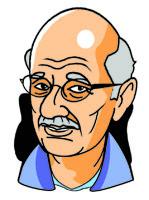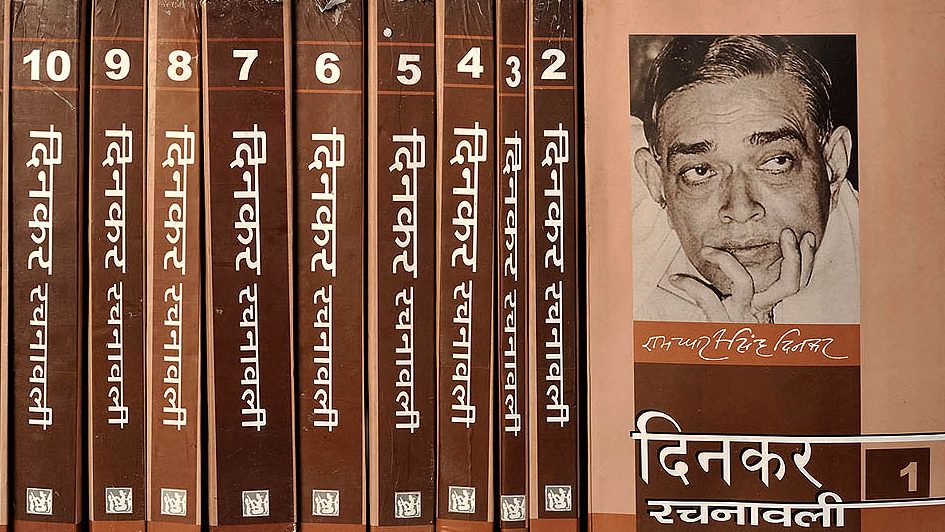Dear Dadu,
Many thanks for your letter. Partly because of that, my parents were persuaded that I should marry some one from a family that is well known to our extended family. Any advice for me in view of this?
Love,
Asha
Dear Asha,
Ah, I am glad to hear that! Warmest congratulations and very best wishes for a wonderful married life. What advice can I give? Well, when anyone gets married is, at least to a certain extent, the beginning of real adult life. In our traditions, marriage is what marks the transition from the student (or youth) stage to the householder stage in life.
Adjusting to marriage is challenging but is helped by the excitement factor. One aspect of that is simply moving house. In the context of marriage, this is much easier than it would be otherwise: in fact, research shows that moving house is normally the second most stressful thing in life after coping with the death of someone close to you!
 Naturally, the transition is different depending on whether one is staying in the extended family household or whether one is living in one’s own place – there are pros and cons to both arrangements (though, in my view, the best arrangement is to live by yourselves but in a house that is close to your parents and/or parents-in-law).
Naturally, the transition is different depending on whether one is staying in the extended family household or whether one is living in one’s own place – there are pros and cons to both arrangements (though, in my view, the best arrangement is to live by yourselves but in a house that is close to your parents and/or parents-in-law).
But marriage brings to the fore one important fact: all of us are not merely individuals, we are actually persons (the term “individuals” focuses on what we are by ourselves, whereas the term “persons” focuses on what we are in our interaction and relationship with others).
The more dominant a person is, the more likely he or she is to be themselves in all contexts. The less dominant a person is, the more likely he or she is to be adaptable to the people around. However, even the most dominant person does change in relation to, for example, parents, spouse, children or friends – at least in comparison to what the person is like at work. And even in the office, do not be surprised if the most dominant kind of person changes behaviour in front of her or his superiors!
What I am trying to say is simply this: how you are before you are married and how your husband-to-be is right now are going to change once you are married. Partly this is just due to the fact that marriage puts you in a position of much greater responsibility, and begins the transition from thinking primarily in terms of “I” to thinking primarily in terms of a new “We”. But personality-change following marriage is also partly because of the specific interests and personalities that are going to be brought together by the two of you. In each of you, some things will be added, some things will be strengthened, some things will be weakened and some things will drop away.
Listen and observe
There will be a lot of adjustment to each other, and a lot of discovery of each other’s personalities and interests – which cannot happen without a lot of speaking-to-each-other to discover how each of you feels and thinks and acts. Women are naturally better at chatting, and are better at articulating feelings. That is the reason you must keep watch on how much you speak in comparison to how much he speaks, on how much you speak about your feelings in comparison to how much he feels able to talk about his feelings. If your husband doesn’t talk much, and certainly if he doesn’t talk much about his feelings, you need to ask him questions if necessary, and certainly you need to give him the space and attention so that he is encouraged to speak, and particularly to speak about his feelings.
But there is one thing that is even more important than conversation: observation. We Indians are usually quite good at observing others and noticing from very small changes in their deportment and expression how other people are feeling. But observation comes from caring. My father-in-law used to talk about “entering into communication” with even a tree or a chair – he was a very good engineer. For him, it was possible to have an internalised understanding, through observation, even of inanimate objects. So it is not only conversation that is important but also learning to use your eyes to observe the other person, and to put yourself in the other person’s shoes to sense how they might be feeling. In my generation, it was very natural and usual for women to be brilliant at this, and for men to be pretty hopeless at anything like this.
But we live in a changing world, and I find that some men have become better at this sort of thing, while some women, particularly professional women, are now as insensitive as men used to be. Anyway, if I had the chance, I would encourage both of you in your interaction with each other to focus on using your eyes as well as your ears, to observe as well as to listen, so that you notice or learn not just about the surface level, but also about what changes at the surface level might mean about much deeper things.
The most fulfilling thing about marriage is not sex, but what sex represents: the possibility of real intimacy, of really knowing another person, of really caring for another person, for the rest of your lives.
So much for now. I will write more soon.
Love,
Dadu
Published in the August 2014 issue of the Forward Press magazine
Forward Press also publishes books on Bahujan issues. Forward Press Books sheds light on the widespread problems as well as the finer aspects of Bahujan (Dalit, OBC, Adivasi, Nomadic, Pasmanda) society, culture, literature and politics. Contact us for a list of FP Books’ titles and to order. Mobile: +919968527911, Email: info@forwardmagazine.in)
The titles from Forward Press Books are also available on Kindle and these e-books cost less than their print versions. Browse and buy:
The Case for Bahujan Literature





